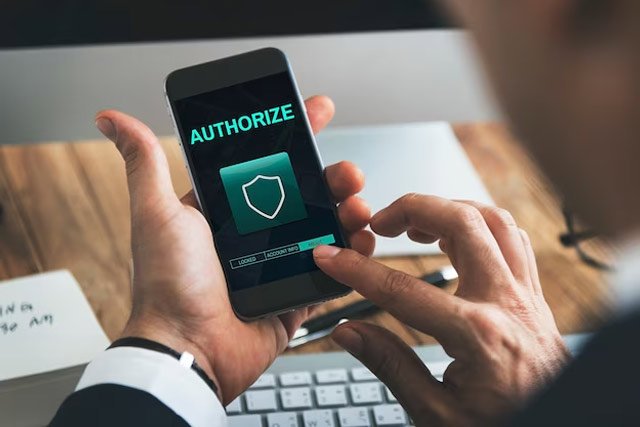Filing taxes may not be enjoyable, but it is an essential task. Fortunately, there are ways to minimize the hassle by opting for secure online tax filing. Many tax filing services offer free online filing if you meet certain requirements. However, these services can leave your personal information vulnerable to cybercriminals. Here are a few tips to help you protect your data when filing your taxes online.
Use a Private Network

When filing your taxes online, using a private network is best. You should use your home internet connection or a VPN service you trust.
In addition to using a private network, you should also be sure to use a secure browser. A secure browser with a green lock icon and encryption protects against phishing and malware. Before starting the filing process, ensure your antivirus software is up to date.
Remember to delete sensitive information from your device after completing the process when using tax filing services. People often use their phones to capture W2s and other private documents for filing purposes, but this can expose their devices to hackers. Once you finish, ensure you delete these files from your device to protect yourself from potential breaches.
Enable Two-Factor Authentication

Two-factor authentication (2FA) adds an extra layer of security by requiring users to provide a second piece of information and their password for account access. Enabling this feature in the Security section of your online tax product prompts the system to request a verification code from an authentication app (like Authenticator or Thomson Reuters Auth) to access your account. This measure helps deter hackers from accessing your tax return or personal information.
Cybercriminals always look for ways to go up, around, or through digital fences that protect our private information and money. While no security system is foolproof, adding this extra layer of protection can make it much harder for thieves to take over a tax file.
Authentication apps are available for most online tax products, allowing tax filers and practitioners to verify their sign-in attempts. These apps generate a one-time code for users to enter into their tax software during authentication. Download these apps from the Google Play or Apple app stores for added functionality, including notifications about the correct account sign-in status.
Alternatively, taxpayers and tax professionals can verify their sign-in attempts using a code sent to their email or phone. While these methods can be convenient, they’re less secure than an authentication app.
Remember that malware, such as keystroke loggers or spyware, can compromise any device used for tax filing. Safeguard your device by running an antivirus program such as Bitdefender or Avast prior to starting the filing process. Additionally, be sure to check for any updates that may be available and install them as soon as possible.
Procrastinating on tasks like filing taxes can expose you to fraud. To ensure thoroughness, it’s wise to start working on your tax return promptly and not delay due to stress.
Install a VPN

Filing taxes online is convenient and easy, but it also makes you vulnerable to hackers who can steal and exploit your information. Implementing these business cybersecurity practices is crucial to safeguard yourself and your clients when filing online.
First and foremost, be sure you’re using a VPN. A VPN safeguards your online activity by establishing a secure tunnel between your computer and the internet. It shields you from third-party snooping, including advertisers, trolls, and other malicious entities. Additionally, a VPN conceals your IP address, thwarting companies from tracking and profiting from your online behavior.
When it comes to securing your files, always make sure that you’re using a VPN with strong encryption. Keeping your files encrypted is vital whether you’re working from home or in a tax office. Taking this step will safeguard your data against malicious third parties, including hackers who commonly target small businesses and individuals.
Another security measure you can take is to use a VPN when you’re traveling. This will prevent location-based price discrimination when companies and websites charge different prices for the same product or service based on a user’s location. A VPN with servers worldwide can help you avoid this issue and get the best deal possible.
To avoid security mistakes, you should install a VPN when working from home or on a business computer, as this will help protect your work from cyberattacks that could compromise your files. If you’re working from home, ensure your Wi-Fi network is private and your antivirus software is current.
While filing your taxes on April 15th might be tempting, try not procrastinating. Procrastination can lead to mistakes and increase your risk of being a victim of identity theft or fraud. By implementing these precautions, you can secure online tax filing.
Avoid Public Wi-Fi

When filing taxes online, you’ll save various files containing sensitive information, such as tax forms, pay stubs, receipts, and financial records. Online intruders target this data for identity theft, fraud, and other illicit activities. This includes personal details like your social security number, banking information, and credit card accounts.
This is why it’s best to avoid public Wi-Fi when doing any work that involves your finances. Public networks are easy for hackers to snoop on and expose your personal information. They can even spy on your keystrokes and learn your passwords, giving them access to your online bank accounts and credit card accounts. In addition, they can use the information they steal to file fraudulent returns in your name.
The question arises when someone considers using a VPN while using public wifi. The answer is always because A virtual private network encrypts your data and routes it through a server, which masks your IP address. This makes it much harder for cybercriminals to steal your information, including your social security number and other sensitive data.
It is also a good idea to avoid using devices that have known problems. For example, if your smartphone or tablet has been acting up lately, you should try fixing it before you start working on your taxes. A glitchy device can frustrate you and cause you to miss out on important tax deductions.
Keeping your sensitive information private while you file your taxes online is essential. By following these simple tips, you can ensure that your online tax filing experience is secure. Consider working with a financial advisor to clarify your tax situation.
File your taxes on time this year. If you don’t, you risk paying hefty fines and interest charges.





